A PWC survey found that companies are experiencing increased fraud as part of an overall increase in economic crime around the globe. Reported economic crime has increased over the last few years and is continuing to increase. As a result, companies face ever-increasing risks of fraud. In response, companies are increasing their spending on fraud prevention and detection strategies, with technology and data analytics at the forefront. Companies are exploring the use of whistle blower programs to encourage reporting and detection. Indeed, according to another report, it is internal reporting that most often leads to the fraud being discovered.
Most of us will know of an incidence of fraud amongst colleagues, usually past colleagues. Often it is the people you least expect! Sometimes it is those in authority – the most trusted – but of course they are often the ones subject to the least scrutiny – as was the case of my ex colleague and my boss at the time!
Even the most loyal employee may commit financial fraud and steal from the company if the opportunity arises and the temptation becomes too great — or if the employee finds himself/herself caught up in a serious personal financial dilemma and needs fast cash. Just this week ABC published an article entitled “My pokies addiction landed me in jail at age 64”. As the lady said: “I hadn’t had a speeding ticket or parking ticket before that.” Yet she stole $400,000 from her employer to fund her addiction.
So what can companies do and what should they look for?
The four basic types of financial fraud are:
- Embezzlement, also called larceny, is the illegal use of funds by a person who controls those funds. For example, a bookkeeper may use company money for his/her own personal needs.
- Internal theft is the stealing of company assets by employees, such as taking office supplies or products the company sells without paying for them. Internal theft is often the culprit behind inventory shrinkage.
- Payoffs and kickbacks are situations in which employees accept cash or other benefits in exchange for access to the company’s business, often creating a scenario where the company that the employee works for pays more for the goods or products than necessary. That extra money finds its way into the employee’s pocket.
- Skimming occurs when employees take money from receipts and don’t record the revenue on the books – particularly prevalent when handling cash receipts.
Good governance is the key and it must start with the Board ensuring that a proper system of internal controls is in place. Internal Control can be defined as the system of practices, procedures and policies intended to safeguard the assets of the organisation from fraud or error and ensure accurate record keeping.
Remember that the main objective of an external audit is not to detect fraud, so the Board need to ensure they are satisfied that not only do they have the right controls, but they are policing them.
If you would like to learn more, please do get in touch and/or consider our series of Boardroom Excellence workshops which we are running in February and March 2020.








